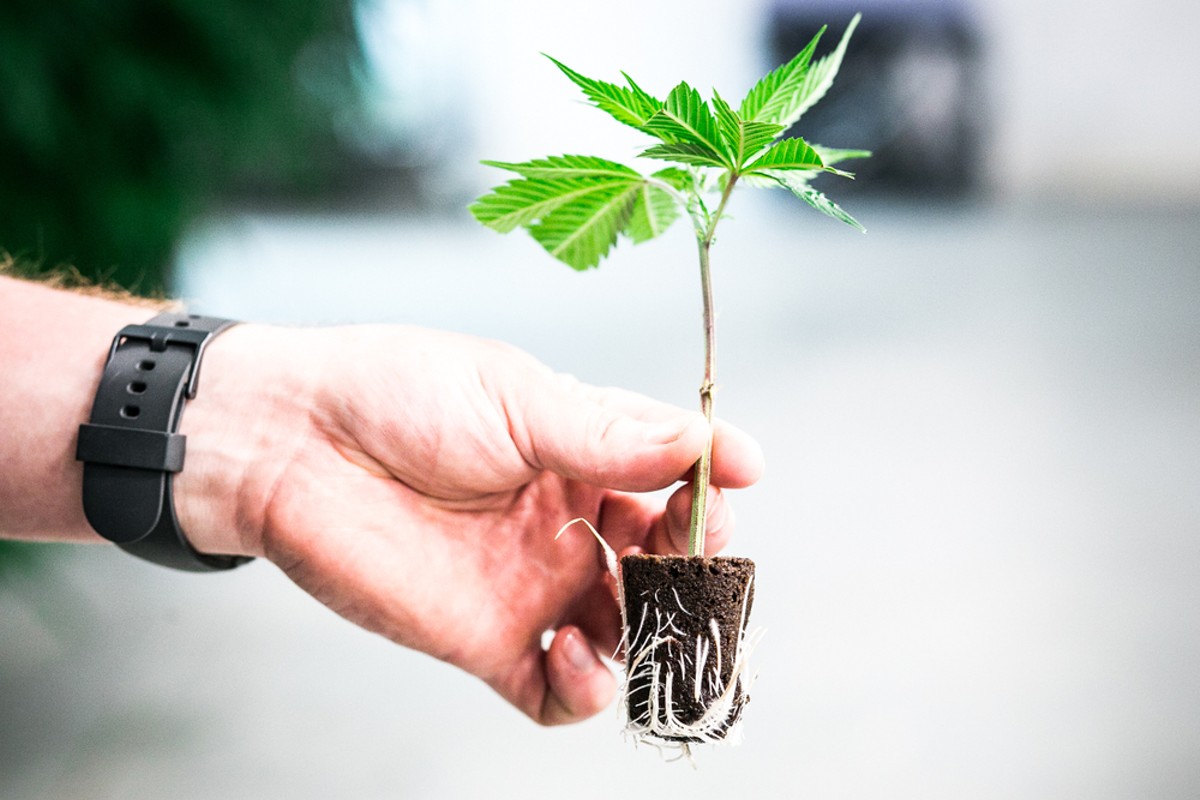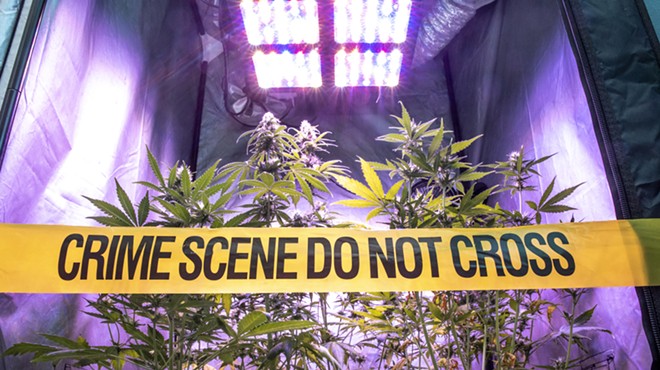Michigan is the first state in the Midwest to legalize adult-use marijuana. That's a benchmark that belies the old Rust Belt image and provides potential to alter the common narrative. We're not going to suddenly turn into the green belt, but we're growing in that direction. And things are happening fast nearby.
The Illinois legislature just passed an adult-recreational-use bill that Gov. J.B. Pritzker intends to sign. He released a statement last week that glowingly endorsed marijuana legalization in Illinois: "This will have a transformational impact on our state, creating opportunity in the communities that need it most and giving so many a second chance."
Well, if we're transforming states with legalization, what about Michigan? We have that first-in-the-Midwest cachet, but will it translate into an advantage as the industry develops? Can we be best in the Midwest?
Ryan Basore, director of business development for the Michigan Cannabis Industry Association, thinks so. "Michigan legalizing cannabis first in the Midwest will have a large impact on our economy and tourism," he says. "Not only are young professionals staying in Michigan because of this opportunity, we are seeing huge investments from multi-state operators and publicly traded cannabis companies [in] our communities."
There has certainly been a lot of activity since adult use was legalized last year, and folks are openly promoting events as 420-friendly, pushing social use to the legal limit. CBD products are on shelves practically everywhere. A growing public curiosity drives increasing media coverage from mainstream sources, and marijuana-dedicated media is a growing phenomenon on every possible platform.
That sounds like a good environment for a new industry. However, if our legislature hadn't diddled around the past decade as far as setting up an infrastructure, we'd be well ahead of the curve. But it's hard to call what we have as being that far ahead. The Illinois bill calls for the first legal adult-use sales to start on Jan. 1, 2020. The Michigan law requires that the state begin handing out applications for retail outlets on Dec. 6 — less than a month before sales start in Illinois.
Last week a Brightfield Group study proclaimed that adult-use sales in Michigan could outpace Colorado's by 2023. That should be true based solely on population. Michigan has 3 million more people than Colorado, and therefore a larger potential market. If Michigan adults use marijuana at the national averages, we naturally have a bigger market.
By the same measure, Illinois has 3 million more people than Michigan, and they got that Buds and Blues connection to market. Their sales will naturally outpace ours in time. That's why it's been so important for Michigan to be ahead of the curve in the Midwest, even if the state bureaucracy has not pressed the advantage. Now we have a governor sincerely trying to boost the cannabis industry. Gov. Gretchen Whitmer's newly minted Marijuana Regulatory Agency needs to find a way to quickly begin handing out adult-use licenses to keep the industry ahead in the minds of consumers.
"[With] Michigan already being a leader in tourism with so many beautiful destinations, our cannabis economy will continue to flourish," Basore says.
In order for that economy to flourish, the MRA also has to find a way to end the turf war between licensed producers and caregivers. There are other fires to put out, increasing the pace of licensing and building up production. There needs to be some movement on rules for micro businesses and ways for smaller players to work inside the industry. That will decrease the black market, although there is a long road to significantly diminishing that.
The Illinois law also tackles two issues that help bring some players in from the cold — both are concerns in Michigan. Illinois now provides for the automatic expungement of records for marijuana crimes involving 30 grams or less, and the opportunity to apply to vacate the conviction for crimes involving 500 grams or less. In Michigan, expungement was not part of the law because initiatives can only address one issue. Discussion of expungement came up during the gubernatorial campaign, but it was not a part of the law. Expungement would help people in Michigan participate in the marijuana business because, as it stands now, people with drug convictions can't get state licenses. Those convictions also disqualify one from housing and education assistance. (See this week's news section for more on this.)
The other thing that puts the Illinois law ahead of Michigan's is that it provides loan assistance for cannabis-related businesses in communities that have been disproportionately impacted by cannabis criminal convictions. That's a stream in the legalization movement to aid communities that have been devastated by the war on drugs. It's well-known that the vast majority of battles in the war on drugs took place in and against communities of color. Provisions such as loan assistance are in part an attempt to provide some healing where it's needed most.
Those two provisions might end up providing a basis for a strong industry and opening the gates for more than just the multi-state players with deep pockets. That might have some potential to diminish the black market. That and a bona fide effort by state legislators to make it work. Illinois seems to have it. Michigan lacked that until a few months ago. And industry watchers expect that any day now the MRA will announce something that gives clarity and positive direction to the muddle of constantly shifting rules and deadlines the marijuana marketplace has been subject to — not to mention giving us some word on micro business and social equity provisions.
Michigan is still first in the Midwest to change the marijuana legalization map. That will never go away. But the Illinois phenomenon provides some perspective to ask who is best in the Midwest. And there's even a potential vote on an Ohio marijuana legalization initiative that would allow adults 21 and over the right to possess, share, and grow marijuana.
Michigan was first, but a shaky start hasn't put our industry nearly as far ahead as it should be.
First MRA public meeting
Michigan's Marijuana Regulatory Agency has scheduled its first public meeting at 9:30 a.m. on Thursday, June 13 at the Williams Building, located at 525 W. Ottawa Street in Lansing. This marks a change from the monthly meeting and licensing schedule of the former licensing board. The MRA now plans to process licenses on an ongoing basis in order to speed up licensing. The Michigan Marihuana Licensing board previously did this only at monthly meetings. The MRA is required to hold at least four public meetings each year to hear complaints and comments from the public. Written comments may be emailed to [email protected].
It's a new era for marijuana in Michigan. Sign up for our weekly weed newsletter, delivered every Tuesday at 4:20 p.m..








